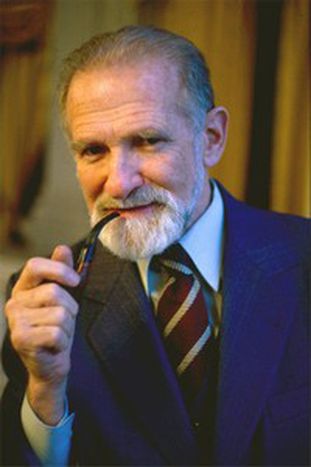
Bronislaw Geremek: 'I am ready to pay the consequences'
Published on
Translation by:
Hanna SankowskaThe former dissident and Polish foreign minister on refusing to submit a new law-bound declaration that he did not cooperate with Communist-era secret police
A new law which came into effect in conservative Poland on 15 March, has ordered everyone in a public position - including lawmakers, government ministers, judges and teachers - to sign declarations confirming they didn't co-operate with Communist era secret police, if they hadn't already done so.
The last sentence of the controversial bill warns that failure to submit the declaration means losing a public position. It's a warning currently facing first Prime Minister of democratic Poland, Tadeusz Mazowiecki, and professor and MEP Bronislow Geremek, 75. Some argue that one cannot choose which laws he or she should respect. Others say that Geremek’s refusal was a dramatic but necessary act of civil disobedience.
How did you feel when you received the notification?
Above all, I felt embittered. The written statement from the National Electoral Commission that I received looked a lot like the letters informing me that I was denied a passport, which I used to receive in the time of the Polish People’s Republic. In the documents that the Commission sent to me recently, I was informed that as a consequence of my refusal to comply with the new invigilation law, my mandate as an MEP was being taken away. I received a letter from the president of the Commission declaring it was a part of his responsibility to inform me that the process was already in motion.
When I submitted my previous declaration on the subject of collaboration with the Communist secret services, I was speaking in a different legislative context. I was declaring something, and the voters were making their own decisions about it when I was running for a public post. And now, automatically, the decision of hundreds of thousands of voters is being reversed not because of the fact that I collaborated with former secret services, but because I did not file another bureaucratic form proving that I didn‘t.
This is unacceptable. I think about it with deep pique. Poland is a free country - we cannot make others responsible for solving our problems. A bad law was created by a democratic institution, and this is why my voice is a voice in the name of certain rules. An official cannot invalidate the voices of 120, 000 voters.
What do you think about the fact that major European politicians spoke on your behalf? The information about your situation was covered in over 70 European daily newspapers.
I would like to see this as an expression of support and trust towards Poland. This is not a provocation. It is very nice, but I would rather my own country was conscious of the fact that the new law is bad, and that I wouldn’t need the help of other countries. And because we are a democratic country, we should be able to reverse this law. I hope that the public authorities will come back to their senses.
I receive a lot of declarations of support from European governments and their top representatives. The European parliament president Hans-Geert Poettering himself said that he found it imperative that I remain a member of the European Parliament. The Parliament will consider whether or not the acts of the Polish government were an element of political persecution, which goes against the idea of parliamentary immunity.
I would not want this situation to be seen as a personal one, but rather as a situation which shows that Poland is an important member of the European community, and that the Union is a family of countries which joined it.
How would you comment the words of French MEP Daniel Cohn-Bendit (European Greens leader) about the 'Stalinist or fascist ways' of the Polish government?
The things that Cohn-Bendit say are his own responsibility. He is quite a personality and he is famous for using a language which makes the truth more dramatic. I think that the comparisons that he made to describe Poland cannot relate to its current government, of which I do not approve, and which was nonetheless chosen democratically. I also think that this democratically chosen government will be changed in the next elections.
How do you envisage the situation as developing? Is it a real possibility that you could lose your mandate in parliament?
I have always taken into account the possibility of losing my parliamentary representative mandate. When I made my decisions I was aware of the risk that they entailed. I am now ready to pay the consequences.
There are many scenarios right now and everything is in the hands of the Polish authorities. They can declare that my mandate be automatically taken away, due to the new regulations. But it would be paradoxical - the act that is being punished here, using the most severe punishment available in this situation, is not the act of collaboration with Communist secret services itself – I have never done that. It's punishing the act of refusing to fill in a piece of paper that I was requested to submit. It’s an abuse of a certain legislative culture.
Poettering declared that if he receives a document from the Polish authorities he will pass it on for consideration to parliament's legislative council, and then it will also be considered by the parliament in a plenary session.
In that case a conflict would arise, which may prove detrimental to Poland. The conflict between the Polish Republic's government and parliament would have to be resolved by the Council of Europe or by the European Court of Justice. Because there is no precedent about a situation like this in the history of EP, the only thing we can do now is to wait.
Translated from Bronisław Geremek: "Jestem gotów ponieść konsekwencje"



